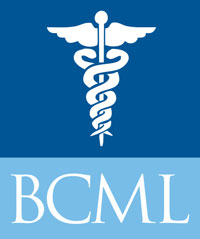When you’re in pain or injured, you want quality care as quickly as possible. While the hospital may seem like an obvious choice, many times a walk-in clinic can provide the same care but much faster.
As a general rule, many non life threatening injuries can be treated more quickly at a walk-in clinic or an urgent care versus a hospital. Here we will look more closely at when to go to the hospital versus when to go to a walk-in clinic. Need medical help now? Contact the BCML Toronto walk-in clinic at 416-929-1900.
Is Walk-In Care Different from Urgent Care?
To understand why one option might be better than another, it is good to start by knowing the difference between walk-in care, urgent care, emergency room care, and visiting your primary care physician.
First, aside from a primary care physician, all of these offer medical attention without appointment. However, an urgent care or walk-in facility may require an appointment for certain items such as vaccination shots or because of current covid precautions. Additionally, there are three types of walk-in clinic options to be aware of.
Retail Clinic Vs. Full Service Walk-In Clinic
The term “walk-in clinic” can be confusing as it can sometimes refer to an urgent care facility but it can also be used for a retail clinic or a full service clinic. Here are some important differences to be aware of.
Retail Clinic: A retail clinic is one that is typically located inside of a pharmacy drug store. Here, you can get vaccinations, flu shots, diagnosis of common viruses/infections like strep throat, preventative testing for high blood pressure, and treatment for minor injuries like small rashes or burns.
Full Service Walk-In Clinic: A walk-in clinic that is not located in a pharmacy offers a more robust range of services including blood testing, more extensive diagnostic testing, and treatment for more severe but not life-threatening injuries. At BCML walk-in clinic, we offer primary care doctor visits, optometry services, dental care and much more.
Community Center Walk-In Care: Depending on where you live, you may also have a community health center nearby. Services offered at these facilities can vary but they often provide similar services to a retail walk-in clinic along with STD testing, pregnancy tests, and sometimes prescription birth control.
Urgent Care: Urgent care facilities will typically have at least one doctor on staff at a time along with nurses and physician’s assistants.
What Urgent Care Can Treat: An urgent care can treat and diagnose a wide range of injuries and illnesses including sprains, common colds, minor burns, lesions, rashes, urinary tract infections, upper respiratory infections, etc.
What Urgent Care Cannot Treat: While urgent care has many capabilities, it cannot treat emergency situations. This includes chest pain, major bone breaks, major burns, hemorrhaging, and anything that is immediately life threatening. An urgent care is not guaranteed to have the necessary equipment to treat these emergency situations so it is not the best choice when you are experiencing these situations.
Hospital Emergency Room: An emergency room will have doctors, nurses, surgeons and often some specialists on staff along with the most comprehensive diagnostic equipment.
What an Emergency Room Can Treat: There is very little that an emergency room cannot treat, but that does not mean it is the best option every time.
What an Emergency Room Cannot Treat: While an emergency room can treat nearly any injury, it is likely to be a very slow option unless you have an obviously life-threatening issue. If your injuries are significant enough, you will be prioritized in an ER, however; keep in mind there are likely to be many people waiting. An ER is also not the place to seek help with chronic illnesses you would normally see your primary care physician for.
Should I Wait to Get Medical Care?
Depending on when you require medical attention, a hospital may be your only option. This is because walk-in clinics and urgent care facilities do keep business hours while an emergency room is open 24/7.
However, since the majority of what a walk-in clinic and urgent care treats will be non-emergency situations, this should not be an issue. Generally, if you have injuries or an illness that could be treated at a walk-in clinic or urgent care, it is likely ok to wait until a clinic opens.
For example, a sprained wrist or ankle can be soothed at home with ice packs, over the counter pain relievers and rest. If the pain persists for several days or you cannot put weight on the injury without severe pain, it may need further medical evaluation by your primary care physician or at an urgent care.
When Should You Go to the Hospital?
While there are many reasons an emergency room visit may not be necessary, it is still better to be cautious. Generally, if you feel that you are in need of emergency care, you should go to the ER or call 911.
Some situations when an ER visit is definitely needed include: when you have been in a serious car accident or fall, if you have severe chest pain, have broken a bone, have a head injury, are vomiting blood, drug overdose, seizures, and major burns. A fever is typically not a reason for an ER visit, however; if the fever is above 39.4C and includes a severe headache and/or rash, you will need to go to the hospital.
When Should You Go to a Walk-In Clinic: Along with services like blood and urine testing, a walk-in clinic is a better option when you have symptoms such as a sore throat, minor cuts or sprains. At a full-service walk-in clinic like BCML, you can also get help with managing chronic conditions, dental care, and regular check-ups.
Conclusion
If you have a sudden injury, illness, or pain it can be frightening. Fortunately, there are several options for you to seek care. While an emergency room can provide help, your wait times are likely to be significant. Instead, opt for a walk-in clinic any time you have non life threatening concerns.
Not sure where to get help? BCML is here to assist in managing your total health including eye exams, blood testing, treatment for common colds and infections, minor sprains and burns, physiotherapy, and dental care. To book an appointment or talk to a member of our healthcare team, call us at 416-929-1900.


